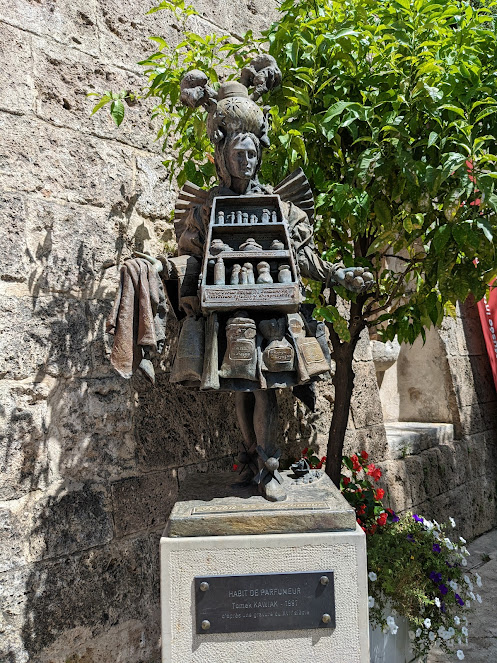On websites like Fragrantica and Basenotes, users from around the world post reviews and descriptions of perfumes. Because smell can’t be transmitted digitally—or, arguably, via language—these descriptions necessarily court the absurd. I might even argue these sites hold some of the best surrealist writing being done today. Take, for example, these snippets from descriptions of Diptyque’s Tam Dao, a popular, mostly inoffensive sandalwood-vanilla perfume:
- “splintery”
- “buttery, cumbersome”
- “synthetic lime furniture polish which isn’t unpleasant”
- “stir-fried chicken with peanuts at first spray followed by an orange chicken and veggies drydown”
- and my favorite: “it smells like wet cement or a cold, dark parking lot on a rainy day, but add soft florals and a bit of spice like just the most tiny little micro speck of spice and then take that scent in your hands and rub it between some soft sandalwood powder”
In some ways, Perfumer’s Organ began as a loving homage to these maximalist, grasping attempts to capture that most fleeting and foundational of sensory experiences, scent.
In writing the book, I also thought a lot about communication at a distance—something that smell does very well, if indirectly, and something arguably implicit in the act of writing a poem. I wrote the bulk of it during the most isolated months of the pandemic, so this was constantly on my mind: am I really just sending all these emails and messages and conference calls to myself, as evidence to myself that I exist? And is this true of poetry as well? What does a social poetry really look like? This book doesn’t claim to answer these questions, but got most of its energy from them, and from this early pandemic anxiety. After all, to get close enough to smell another person—whether familiar or a stranger—is an extraordinarily intimate social experience, fraught with emotional and, in those days, physical danger.
At the time, I also wondered about the shared promise of both perfume and its ancestor, incense, to attract or communicate: one with a (potential) romantic partner, and the other with God or the dead. With a nod to Emily Dickinson’s third “Master letter” and certain Catholic mystics, I thought about writing a scented letter to God. Would God or some other promise of contentment and security finally come to town, if only I wore the right perfume? If I said the right words in the right order? Prayer, poetry, and perfume imply an audience, even if none is there; this book is an attempt to search for that audience, that social promise, in its ideal and more earthly form.
Thanks to rob mclennan for inviting me to send this manuscript and for publishing it. Thanks also to Kylan Rice and Dallin Law for looking at early drafts, and to my friends and colleagues at the University of Utah PhD program who talked me through some of its ideas and questions.
Lindsey Webb
is the author of a chapbook, House (Ghost Proposal, 2020). Her writings
have appeared in Chicago Review, Denver Quarterly, jubilat,
and Lana Turner, among others. She was named a 2021 National Poetry
Series finalist and received a fellowship from the Vermont Studio Center. She
lives in Salt Lake City, where she is a Steffensen Cannon fellow in the PhD program
in Literature and Creative Writing at the University of Utah.

